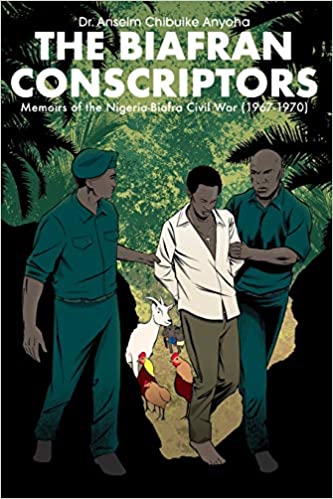Nigeria Postal Service, Nipost: The war room for the Igbo economic blockade

The Biafran Conscriptors
LAGOS, Nigeria – Dec. 2, 2021 – PRLog — To my short-lived pleasant surprise, a package I sent to Nigeria arrived on time to Lagos and even made it to its destination at Owerri. But that was where my luck ended and the usual Nipost nightmare of delay and disgust began. When I became angry and began to ask why the package that reached Owerri was not released to the intended recipient, I finally received some answers. I learned that a supervisor in Lagos gave instructions to the Nipost staff in Owerri not to release the package. Following several calls to the Nipost office in Lagos, I spoke with the manager who issued an unbreakable order to hold the package.
“Why did you give the instructions not to release the package?” I asked. “For your own interest,” the manager said to me with a voice as harsh as it was patriarchal. “I held the goods so that I could save you money on customs duty.”
Even a child wouldn’t believe the manager’s story. I interpreted his actions as a deliberate intention to punish me and the recipient because we are of the Igbo tribe. Yet, Nipost’s staff was surprised that I got so upset about the matter. “Mr. Ajebolade,” I said to the manager, “in that package you held were diabetes and high blood pressure medicines going to relatives, including widowed women in their 80s. You dare not repeat this abuse next time without proper communication of the issues.”
Had my package landed in Igbo lands in Owerri, Awka, Orlu, Enugu, or Onitsha and the manager’s name was Chukwudi instead of Ajebolade, this kind of hostility would not have occurred.
Poor treatment of the Igbos is not new. It reached a climax during the Nigerian-Biafran civil war (1967-1970). In his book, There Was a Country: A personal story of Biafra (2012), Chinua Achebe discussed how Obafemi Awolowo, who was from the Yoruba tribe of Nigeria, devised a strategy for winning the Biafra-Nigeria war. Awolowo suggested to the Nigerian Head of State, Yakubu Gowon, to blockade food entry into eastern Nigeria, which was mostly occupied by Igbo tribes. Millions of Igbo children, along with their mothers and fathers, starved to death as a result.
Igbo kids were so traumatized by Yakubu Gowon and Awolowo that the memory is etched into their DNA. Some children managed to hang on to life by eating lizards, grasshoppers, and house rats
I do not think that efforts to keep the Igbos hungry, starved, and frustrated have decreased. Like a chameleon, those efforts have morphed with a changing world and a changing economy. Delaying the release of their goods and packages by Nipost is one such strategy to keep the Igbos down, demoralized, and defeated. Igbo merchants who deal in goods from inside and outside of Nigeria know this too well and bear the brunt of this hatred.
As to my package, it was subsequently set free.
Do you want to know how children look at Adults’ war? Read my memoir on Nigerian-Biafran Civil war:https://www.amazon.com/

